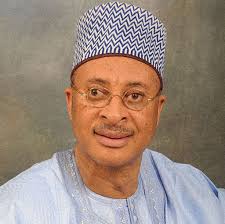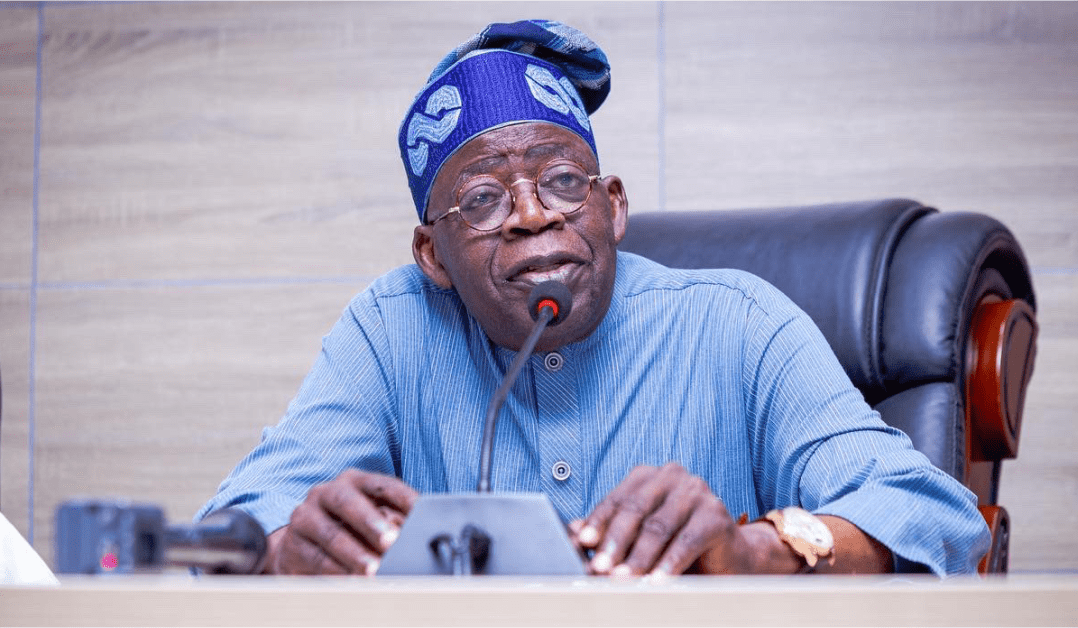***Applauds Tinubu for reappointing one of their own from the creeks
Some Niger Delta groups at a joint world press conference on Monday in Abuja have blamed successive Nigeria’s past Governments for using the Niger Delta Commission as a place to settle the boys for political patronage thereby making the commission to lose sight of its mandate.
This they said was responsible for the high level of corruption that became synonymous with the interventionist agency

They spoke at a joint press conference in Abuja to thank President Bola Tinubu on the reappointment of Chief Samuel Ogboku as managing director of the Niger Delta Development Commission (NDDC
The group said President Bola Tinubu has come to change the old narratives of negative the image of the commission by reappointing the managing director who is also part and parcel of the struggle for the establishment of the commission who knows what to be done.
They likened the reappointment to those of the Service Chiefs and election of the principal officers of the National Assembly that show the evidence that the President stands for equity, justice and fairness.
They also said it shows Tinubu has a strong determination to run an all inclusive administration that will give all tribes, religions and sections in the country high senses of belonging.
Addressing newsmen at the event, the former spokesperson of PANDEF, HRH, Anab Sara-Igbe said the law that established NDDC set the board and the nanagement to stay for four years, unfortunately from inception till date no board had been able to complete its tenure. “That has greatly affected the commission in carrying our its mandate. Everybody will come and do his or her own and sometimes the commission was used for political partronage and that was why the region agitated that a board should be set up for the commission to run fully.
“In 2022 the board was set with chief Samuel Ogboku as the Manging Director but unfortunately the same thing happened. We are lucky this time the man was spared to stay and run the place with others.
According to him, NDDC is a critical body and people fought for its establishment.
“This is the first time an activist who fought for the creation of NDDC was appointed to be the MD. Besides he is from an oil producing community and therefore he knows the impact of oil production, he knows the effect in the region for which this palliative was set up.
“He was the former secretary general of the Ijaw Youths Congress (IYC), so he has a grassroot relationship with most of the youths.
“The IYC cuts across Edo, Ondo, Bayelsa and Akwaibom and as the secretary General he has been to all the nooks and crannies of these region.
“He knows every part of the region. He knows that the region is down and the underdevelopment we have suffered and that is why his choice was unanimously accepted and endorsed by all the Niger Delta leaders, women, youths and elders.
“He is somebody who is humble, who relates with the youths, the women group, the elders also with chiefs and traditional rulers and so such a person can run the NDDC.
If he was removed like the former way of leadership in few months or years it would have affected the relationship between the Federal Government and the Niger Delta.
“So the President was wise enough to have taken this decision by ensuring that there is relationship between the Niger Delta Region and his Government because the economy of Nigeria is vested in the Niger Delta.
“If Niger Delta is working smoothly then the economy of Nigeria will be strong. We are happy with the President and we are ready to give him the necessary support because he has reappointed one of us as the MD of the NDDC who knows the problem and the people.
“I think he can do better and all the fears of political patronage will not be there.
“He wants to put his name on gold for everybody to see that yes we can. Niger Deltans can manage their affairs effectively and properly”
The Nationql President of the Niger Delta Nonviolence Agitators Forum, Wisdom Oniekpar Ikiluli said since the establishment of the Niger Delta Development Commission (NDDC) in 2000, this is one of the few moments that the people of the Niger Delta are feeling high sense of belonging because of the very strategic efforts of Chief Samuel Ogbuku who has shown strong determination to change the negative narratives about the interventionist agency.
“The strategic engagements and all inclusive leadership style of Chief Samuel Ogbuku has resulted to the prevalent Peace and Security that has made the Niger Delta region the safest in the country and this has to be sustained.
“But very importantly, Chief Samuel Ogbuku is from Ogbia Local Government Area of Bayelsa State where crude oil and gas were first discovered in commercial quantity and quality in 1956. Unfortunately, Ogbia is one of the most neglected and grossly underdeveloped areas in the country.
“It is ironical and unbelievable that this is the first time an Ogbia person has been appointed to head any of the interventionist agencies beginning from the Niger Delta Development Basin/Board to the Oil Mineral Producing Area Commission (OMPADEC) and now the NDDC.
The joint press conference was organised by, Niger Delta Civil Action Advocacy Group, Niger Delta Civil Action Advocacy Group (NDCAAG),
Association of Waterways Ambassadors of Nigeria (AWAN),
Movement For Oil and Solid Minerals Producing Communities (MOSMPC), Coastal People Consultative Council (CPCC), South South Community, Abuja (SSCA) and Niger Delta Nonviolence Agitators Forum (NDNAF).
Others are Ijaw Youth Council (IYC) Abuja/Northern Nigeria Chapter, Southern People’s Foundtion (SPF), Ijaw Wari Workwide and Progressive Youth Leadership Foundation of Niger Delta (PYLF-ND)
| The response from the remote server was: 552 1 Requested mail action aborted, mailbox not found |
———- Forwarded message ———-
From: John Akubo <johnakubo@gmail.com>
To: newsalert@guardian.ng, “Newsroom@guardian Ng” <newsroom@guardian.ng>, theguardian1983 <theguardian1983@gmail.com>, Tope Templer <temitope.olaiya@guardian.ng>, TemplerOlaiya <templer2k2@yahoo.com>, Thee Ofoelue <Ofoelue@gmail.com>, goddyofulue@gmail.com, muyiwa.adeyemi@guardian.ng, Guardian politics 2 <oluseye_daniel@yahoo.co.uk>
Cc:
Bcc:
Date: Mon, 3 Jul 2023 18:25:33 +0100
Subject: N/Delta Groups blame past govts for reducing NDDC to political patronage site ***Applauds Tinubu for reappointing one of their own from the creeks
—– Message truncated —–



